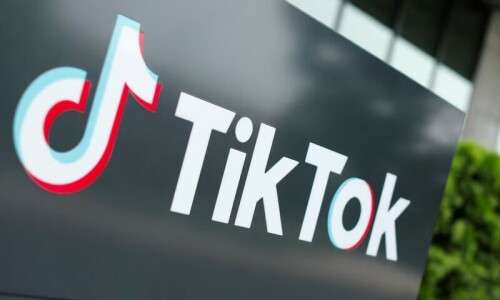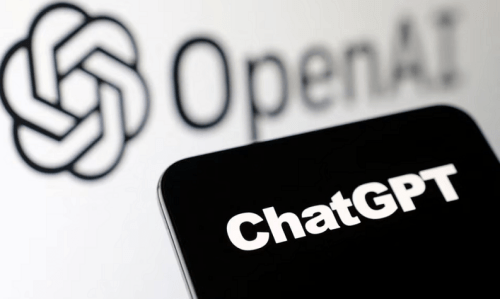In a significant legal development, the U.S. Court of Appeals for the District of Columbia rejected TikTok’s emergency request to temporarily halt a countrywide ban, pushing the company to act swiftly to secure a decision from the U.S. Supreme Court. This decision comes just days after TikTok and its Chinese parent company, ByteDance, filed a motion seeking more time to present their case to the highest court in the country.
Background of the Legal Battle
The legal clash revolves around a law passed by the U.S. government that mandates ByteDance to divest from TikTok by January 19, 2024. The law stipulates that if ByteDance fails to comply, TikTok will face a nationwide ban. This law gives the U.S. government broad powers to prevent foreign-owned apps, especially those with ties to China, from operating in the U.S. due to national security concerns.
TikTok and ByteDance, in their emergency motion filed on December 9, warned that the law, if enforced, could result in the shutdown of one of the most popular social media platforms in the country. TikTok has over 170 million monthly active users in the U.S., and the companies argued that this would represent a severe infringement on free speech.
However, in a unanimous decision, the appeals court dismissed TikTok’s request for more time, stating that the companies had failed to demonstrate any legal precedent where a court had blocked an Act of Congress in such a case. This ruling means that TikTok and ByteDance must now look to the U.S. Supreme Court for a potential intervention.
The Legal Implications
The court’s ruling brings TikTok closer to facing a mandatory divestiture by January 19, unless the Supreme Court intervenes. TikTok’s spokesperson expressed confidence in the case, citing the Supreme Court’s history of protecting Americans’ free speech rights. The legal team believes that the Court will take a different stance, particularly with the ongoing debate about the balance between national security and free speech.
The U.S. Justice Department, which has been advocating for the law, asserts that TikTok’s ties to China pose a national security threat. The government claims that Chinese authorities could use TikTok to access sensitive data or influence U.S. politics and culture. However, TikTok has consistently rebutted these allegations, stating that its operations are independent of Chinese government control. The app emphasizes that its user data is stored in the U.S. through cloud services provided by Oracle, and that content moderation decisions are made by American teams.
What’s Next for TikTok?
Following the rejection by the appeals court, TikTok has few options left. The company plans to file its case with the U.S. Supreme Court, hoping for an emergency ruling that would block or reverse the decision. If the Supreme Court accepts the case, it could rule on the matter before the January 19 deadline. However, if the Court declines to hear the case or upholds the ruling, TikTok will be left with no legal recourse but to comply with the law or cease its operations in the U.S.
The case is set against the backdrop of a contentious political landscape, with President Joe Biden’s administration and the incoming leadership of President-elect Donald Trump both playing pivotal roles. President Biden’s administration has supported measures to address concerns about TikTok’s operations, while Trump has previously expressed a willingness to prevent the ban, citing free market concerns during his tenure.
What Could Happen if TikTok is Forced to Divest?
If ByteDance is indeed forced to sell TikTok’s U.S. operations, it could have far-reaching consequences. The sale would likely involve divesting TikTok’s valuable user base, algorithms, and intellectual property. The potential buyer could be an American tech company, such as Microsoft or Oracle, which previously showed interest in acquiring the app.
However, the sale may not resolve all concerns. The U.S. government might still impose stringent oversight measures, and TikTok’s content recommendations, data storage, and operations would likely continue to face heightened scrutiny. Even if TikTok survives the divestiture, its relationship with the Chinese government could remain a point of tension.
The Future of Foreign-Owned Apps in the U.S.
The legal battle also raises important questions about the future of foreign-owned apps in the U.S. While TikTok is the most prominent example, other apps with Chinese ties, such as WeChat, could also face similar challenges. The law passed by Congress has set a dangerous precedent, giving the government sweeping powers to regulate foreign apps in the name of national security.
The outcome of this case could influence future legal actions against foreign apps, shaping the future of digital platforms in the U.S. It may also prompt other countries to adopt similar measures against apps perceived as threats, potentially leading to a wave of global regulations targeting foreign-owned digital companies.
Impact on Users and Content Creators
The potential ban or divestiture of TikTok would have a significant impact on its users, especially in the U.S., where the app has a massive following among teenagers, influencers, and content creators. Many users rely on TikTok for entertainment, business opportunities, and as a platform for creative expression.
Content creators, in particular, stand to lose a significant source of income if TikTok is banned. The platform has become a powerful tool for influencers to engage with their audiences, promote products, and even launch careers. The uncertainty surrounding the app’s future could leave creators scrambling to find alternative platforms to monetize their content.
FAQs about TikTok’s Legal Struggles and U.S. Ban
1. Why is TikTok facing a ban in the U.S.?
TikTok is facing a potential ban due to concerns over national security, with the U.S. government alleging that its Chinese parent company, ByteDance, could be compelled by the Chinese government to misuse American user data.
2. What did the U.S. Court of Appeals decide?
The U.S. Court of Appeals rejected TikTok’s emergency motion to delay the implementation of a law that would force ByteDance to divest from the app by January 19, 2024.
3. What are TikTok’s chances of avoiding the ban?
TikTok plans to appeal to the U.S. Supreme Court, which could either block the law temporarily or reverse the decision of the appeals court. If the Supreme Court does not intervene, TikTok will likely face the consequences outlined in the law.
4. What would happen if TikTok is forced to sell?
If TikTok is required to sell its U.S. operations, it could involve the sale of its intellectual property and user base to a U.S.-based company, such as Oracle or Microsoft.
5. How could this case affect other foreign apps in the U.S.?
The case could set a precedent for future actions against foreign-owned apps in the U.S., possibly leading to similar regulations targeting apps from other countries, especially those with ties to China.
ALSO READ
https://flarenews.pk/2024/12/14/mohammad-amir-announces-retirement-from-international-cricket/



